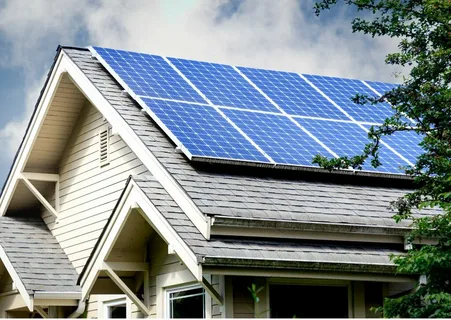As the demand for renewable energy continues to rise, more homeowners are considering solar power as a sustainable and cost-effective solution. Exploring different types of home solar power systems is essential to understand which setup best fits your energy needs, budget, and lifestyle. In this article, we will dive into the most common types of home solar power systems and discuss their advantages and potential limitations.
1. Grid-Tied Solar Power Systems
One of the most popular options for homeowners is the grid-tied solar power system. This system connects your solar panels directly to the local utility grid. During the day, your solar panels generate electricity, and any surplus energy is sent back to the grid, often resulting in credits or compensation via net metering.
Benefits of Grid-Tied Systems
- Lower installation and maintenance costs
- Ability to draw power from the grid when solar production is insufficient
- Potential to reduce electricity bills significantly
However, grid-tied systems do not provide power during grid outages unless paired with a battery backup.
2. Off-Grid Solar Power Systems
For those living in remote areas or who prefer complete energy independence, off-grid solar power systems are a viable choice. These systems operate independently from the utility grid and rely heavily on battery storage to supply power when solar generation is low.
Key Features of Off-Grid Systems
- Total energy autonomy without reliance on the grid
- Requires larger battery banks for energy storage
- Typically more expensive due to batteries and system complexity
Off-grid systems are ideal for cabins, remote homes, or anyone prioritizing self-sufficiency.
3. Hybrid Solar Power Systems
Hybrid solar power systems combine the best features of grid-tied and off-grid setups. They are connected to the utility grid but also include battery storage to save excess energy for later use.
Advantages of Hybrid Systems
- Flexibility to use stored energy during grid outages
- Maximizes self-consumption of solar energy
- Potential to save on electricity costs while maintaining backup power
This system is gaining popularity among homeowners who want reliability and savings without sacrificing convenience.
Choosing the Right System for Your Home
When exploring different types of home solar power system, consider your location, energy consumption, budget, and long-term goals. Each system offers unique benefits and challenges, so understanding these differences will help you make an informed decision.
In conclusion, exploring different types of home solar power systems empowers homeowners to select the right technology to harness the sun’s energy efficiently. Whether you choose a grid-tied, off-grid, or hybrid system, investing in solar power is a step towards a cleaner, greener future.

